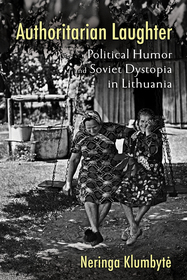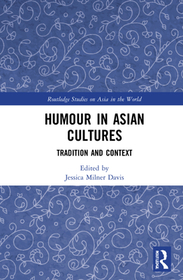
Authoritarian Laughter
Political Humor and Soviet Dystopia in Lithuania
-
20% KEDVEZMÉNY?
- A kedvezmény csak az 'Értesítés a kedvenc témákról' hírlevelünk címzettjeinek rendeléseire érvényes.
- Kiadói listaár GBP 26.99
-
12 894 Ft (12 280 Ft + 5% áfa)
Az ár azért becsült, mert a rendelés pillanatában nem lehet pontosan tudni, hogy a beérkezéskor milyen lesz a forint árfolyama az adott termék eredeti devizájához képest. Ha a forint romlana, kissé többet, ha javulna, kissé kevesebbet kell majd fizetnie.
- Kedvezmény(ek) 20% (cc. 2 579 Ft off)
- Kedvezményes ár 10 315 Ft (9 824 Ft + 5% áfa)
Iratkozzon fel most és részesüljön kedvezőbb árainkból!
Feliratkozom
12 894 Ft

Beszerezhetőség
Megrendelésre a kiadó utánnyomja a könyvet. Rendelhető, de a szokásosnál kicsit lassabban érkezik meg.
Why don't you give exact delivery time?
A beszerzés időigényét az eddigi tapasztalatokra alapozva adjuk meg. Azért becsült, mert a terméket külföldről hozzuk be, így a kiadó kiszolgálásának pillanatnyi gyorsaságától is függ. A megadottnál gyorsabb és lassabb szállítás is elképzelhető, de mindent megteszünk, hogy Ön a lehető leghamarabb jusson hozzá a termékhez.
A termék adatai:
- Kiadó Cornell University Press
- Megjelenés dátuma 2022. december 15.
- ISBN 9781501766695
- Kötéstípus Puhakötés
- Terjedelem306 oldal
- Méret 229x152x21 mm
- Súly 454 g
- Nyelv angol
- Illusztrációk 26 b&w halftones, 1 chart - 1 Charts - 26 Halftones, black and white Charts 421
Kategóriák
Hosszú leírás:
Winner of the 2024 BASEES (British Association for Slavonic and East European Studies) Women's Forum.
Authoritarian Laughter explores the political history of the satire and humor magazine Broom published in Soviet Lithuania. Artists, writers, and journalists were required to create state-sponsored Soviet humor and serve the Communist Party after Lithuania was incorporated into the Soviet Union in 1940. Neringa Klumbytė investigates official attempts to shape citizens into Soviet subjects and engage them through a culture of popular humor.
Broom was multidirectional—it both facilitated Communist Party agendas and expressed opposition toward the Soviet regime. Official satire and humor in Soviet Lithuania increasingly created dystopian visions of Soviet modernity and were a forum for critical ideas and nationalist sentiments that were mobilized in anti-Soviet revolutionary laughter in the late 1980s and early 1990s.
Authoritarian Laughter illustrates that Soviet Western peripheries were unstable and their governance was limited. While authoritarian states engage in a statecraft of the everyday and seek to engineer intimate lives, authoritarianism is defied not only in revolutions, but in the many stories people tell each other about themselves in jokes, cartoons, and satires.
TöbbTartalomjegyzék:
Introduction: Authoritarian Laughter
1. Banality of Soviet Power
2. Political Intimacy
3. The Soviet Predicament
4. Censorial Indistinction
5. Political Aesthetics
6. Multidirectional Laughter
7. Satirical Justice
8. Soviet Dystopia
Post Scriptum: Revolution and Post-authoritarian Laughter
Conclusion: Lost Laughter and Authoritarian Stigma





